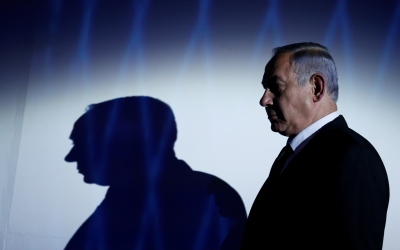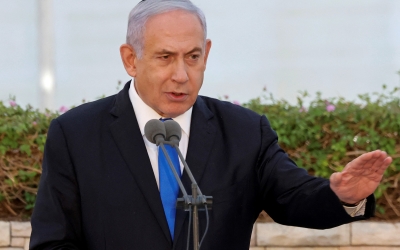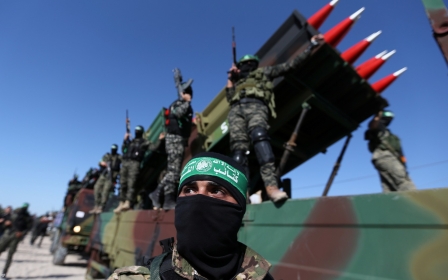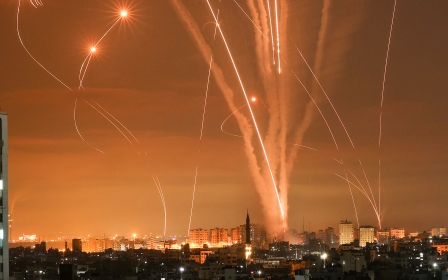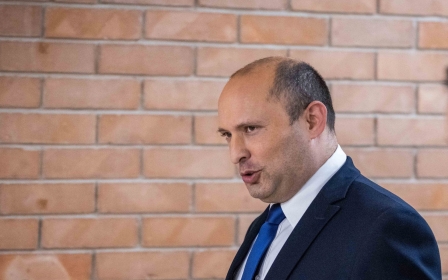Israel's new 'government of change' may mean more of the same
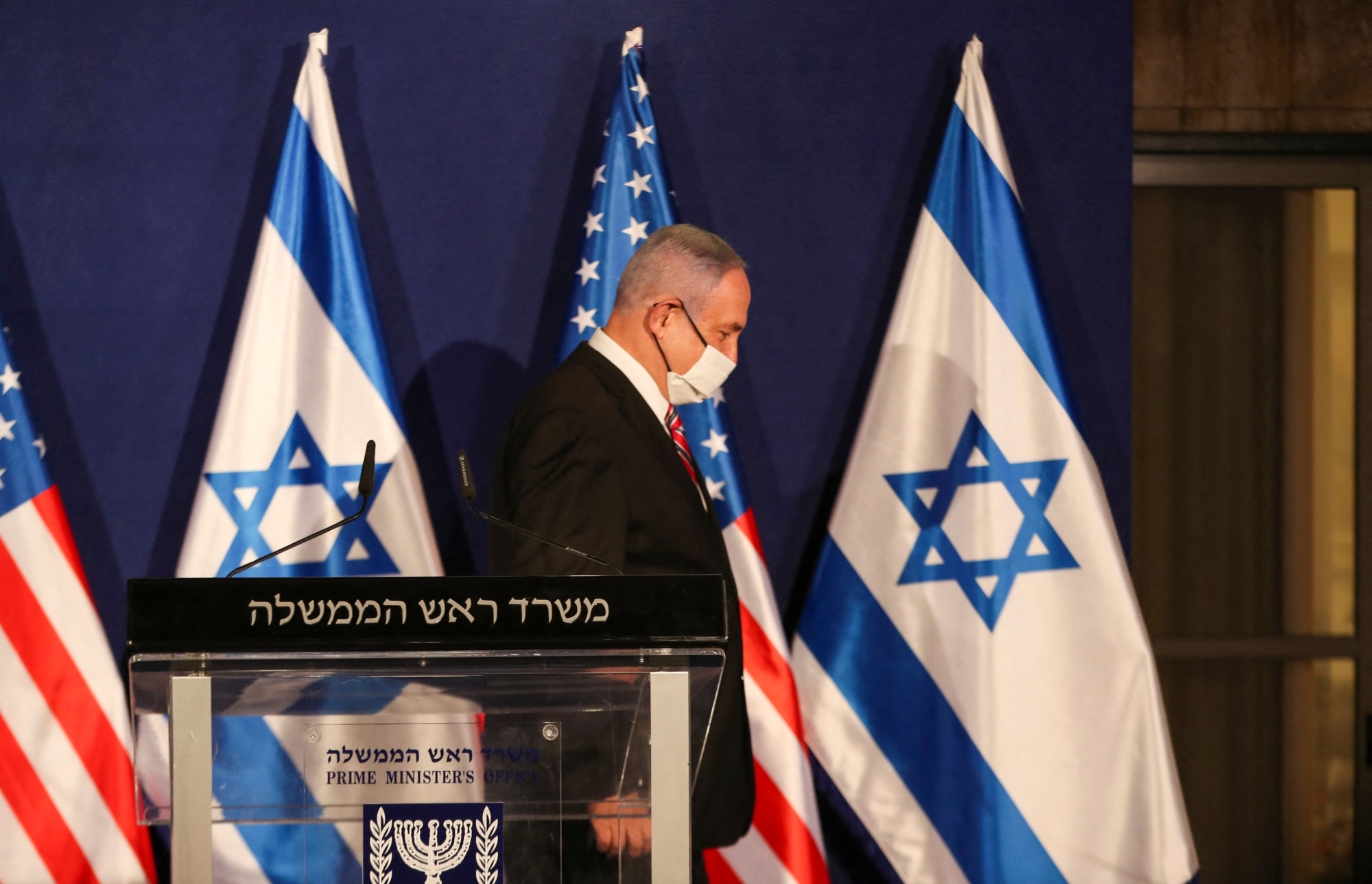
Last Wednesday, 30 minutes before their mandate would have expired at midnight, opposition leaders Naftali Bennett and Yair Lapid managed to perform the impossible and sign an agreement to boot out Benjamin Netanyahu from the prime minister's office after 12 years of domination.
They have to overcome one more obstacle next week, and be confirmed in parliament without any members of their fragile coalition defecting.
New MEE newsletter: Jerusalem Dispatch
Sign up to get the latest insights and analysis on Israel-Palestine, alongside Turkey Unpacked and other MEE newsletters
The new creation calls itself a "government of change". This is true only about one aspect: a body politic consisting of left, centre, right and Raam - the Islamist party - was determined enough to come together to rid Israel of Netanyahu.
Otherwise, from a security point of view, which will influence relations with Palestinians in the occupied territories and with the Arab world, no real change is expected from the Bennett-Lapid rotation government. It is going to be a government of continuity, of "more of the same".
Because of the inexperience of Bennett, Lapid and most of their ministers, their reliance on the security establishment's advice, judgement and guidelines will be stronger. Towering above them all is the army chief of staff, Lt General Aviv Kochavi, whose tenure was just last week extended for a fourth year until the end of 2022.
This is also because the three chiefs of Israeli intelligence are newcomers or due to be replaced. The new head of Mossad, David Barnea, entered office just four days ago. The head of Shin Bet, Nadav Argaman, will step down in September. And that same month, Kochavi will appoint a new chief of military intelligence, Major-General Aaron Haliva.
The Iran question
Yet, even if there are no great expectations from the new government and its security-military establishment, one should hope for some tiny promising developments.
On the Iranian front, Israel will be no less belligerent. Its security and intelligence community will continue to follow and monitor the developments of the nuclear programme with an emphasis on the military dimensions.
Nevertheless, Bennett as prime minister, Lapid as his deputy and foreign minister and Benny Gantz as defence minister will tone down Netanyahu's inflammatory and provocative confrontations with US President Joe Biden.
They all support a "maximum pressure" approach on Iran to slow down its military nuclear ambitions, but are also aware of the Israeli need to cooperate and coordinate with the Biden administration, which intends to return to the 2015 nuclear deal and lift sanctions reimposed by Donald Trump.
Conflict resolution?
But in the short term, the biggest challenge is the Palestinian conflict. Israel and Hamas have just emerged from a bloody deadlocked confrontation that lasted for 11 days.
The realisation in both Israel and Gaza is that this time, after four rounds of violence in 13 years, there is a ray of hope that some sort of agreement can be reached between both sides.
Egypt, as it has shown in the last decade, is the most important player and broker.
An Egyptian delegation headed by the chief of its intelligence, General Kamel Abbas, recently visited Israel, Gaza and the West Bank. In Israel, he met with Netanyahu and the heads of Mossad and Shin Bet. He also met with the local leaders in Gaza, including Yahya Sinwar, and in Ramallah, with Palestinian Authority President Mahmoud Abbas and his advisers.
On the agenda are efforts to reach a long-term agreement endorsed by Qatar, Egypt and most importantly the US administration. In broad lines, a potential deal between Israel and Hamas, which is tagged by major powers as a "terrorist group," will consist of a ceasefire, economic reconstruction of Gaza by the international community, and a prisoner swap.
The deal is on the horizon, as the two sides have realized that the last battle exhausted them. Nevertheless, there is a need for a great deal of open-mindedness, creativity, readiness to compromise and goodwill on both sides. It's not an easy task. While economic reconstruction and a long-term cessation of hostilities, lasting anything between three and five years, is possible, the major obstacle is the prisoner swap.
Hamas is holding two bodies of Israeli soldiers and two Israeli civilians who voluntarily crossed the border into Gaza and are reported to have mental health difficulties.
Both sides are trapped in their own myth, tradition and stubbornness. Hamas, led by Sinwar, who served 22 years in an Israeli prison, is committed to the release of as many of his comrades as possible. In a public speech he said "remember the digits of 1,111," a hint that this is the number of prisoners that he intends to demand in return for a deal.
It seems that Sinwar either is preparing the ground to raise his stakes for the future negotiation or is carried away by his own fantasy world, believing that he has defeated the Israeli enemy. Presenting this demand, Hamas hopes to repeat the 2010 precedent, in which it forced Israel to cave in to a deal releasing more than 100 Palestinians for one captured Israeli soldier.
As far as Israel's old and new government is concerned, it cannot accept such a number. It is committed to a policy paper drafted by Meir Shamgar, a former Supreme Court chief justice, recommending that Israel would agree to a balanced and reasonable swap. Certainly, Israel will not agree for a ratio of 1 to 100.
The gap between the two sides seems to be unbridgeable. But on the other hand, the US administration, Egypt, the UN and EU are sensing that the last war could be an opening to reach a long-term, stable agreement along the Israeli-Gaza frontier. The chances are still low but better than any time since 2014.
Middle East Eye delivers independent and unrivalled coverage and analysis of the Middle East, North Africa and beyond. To learn more about republishing this content and the associated fees, please fill out this form. More about MEE can be found here.


